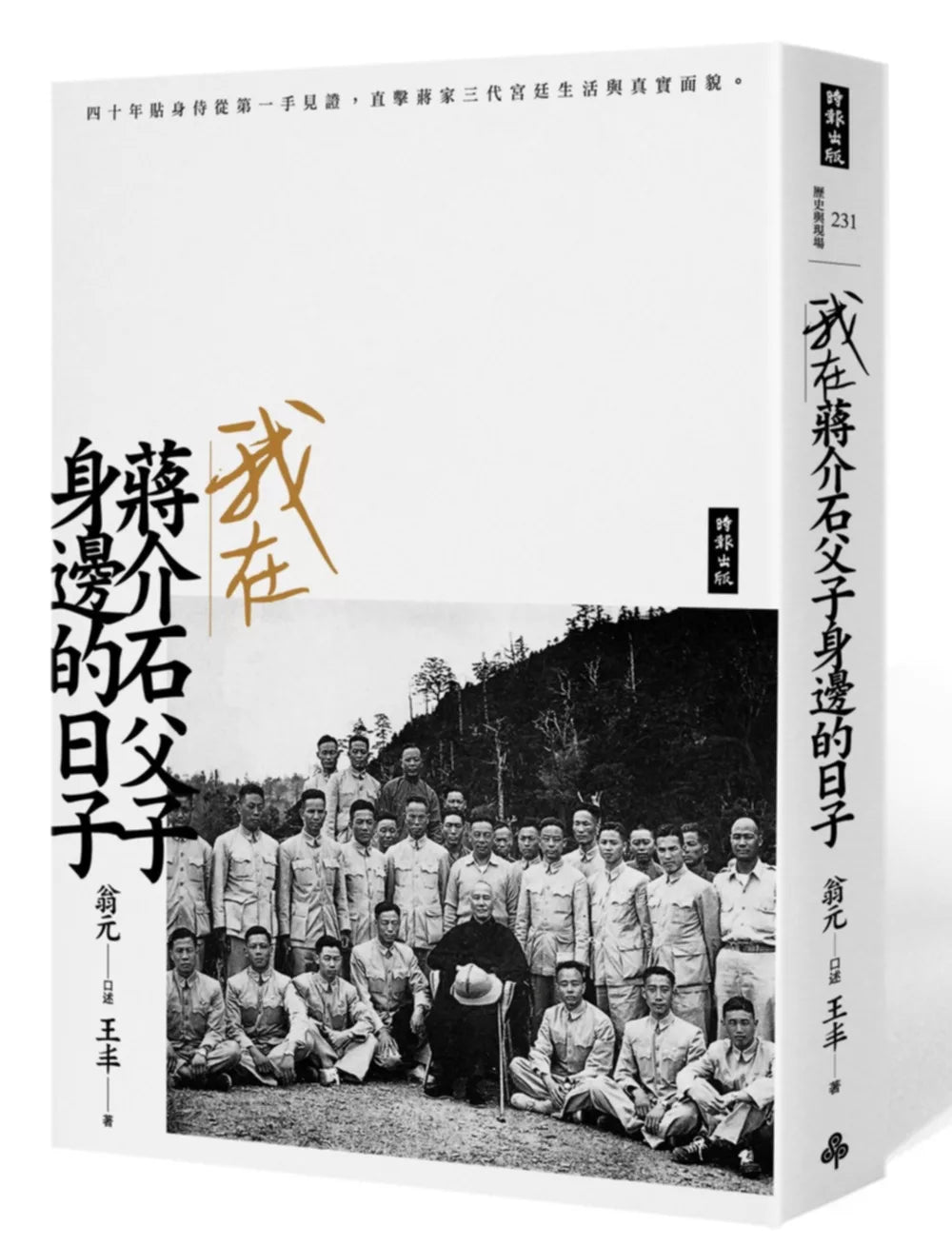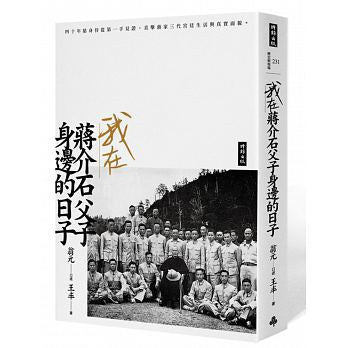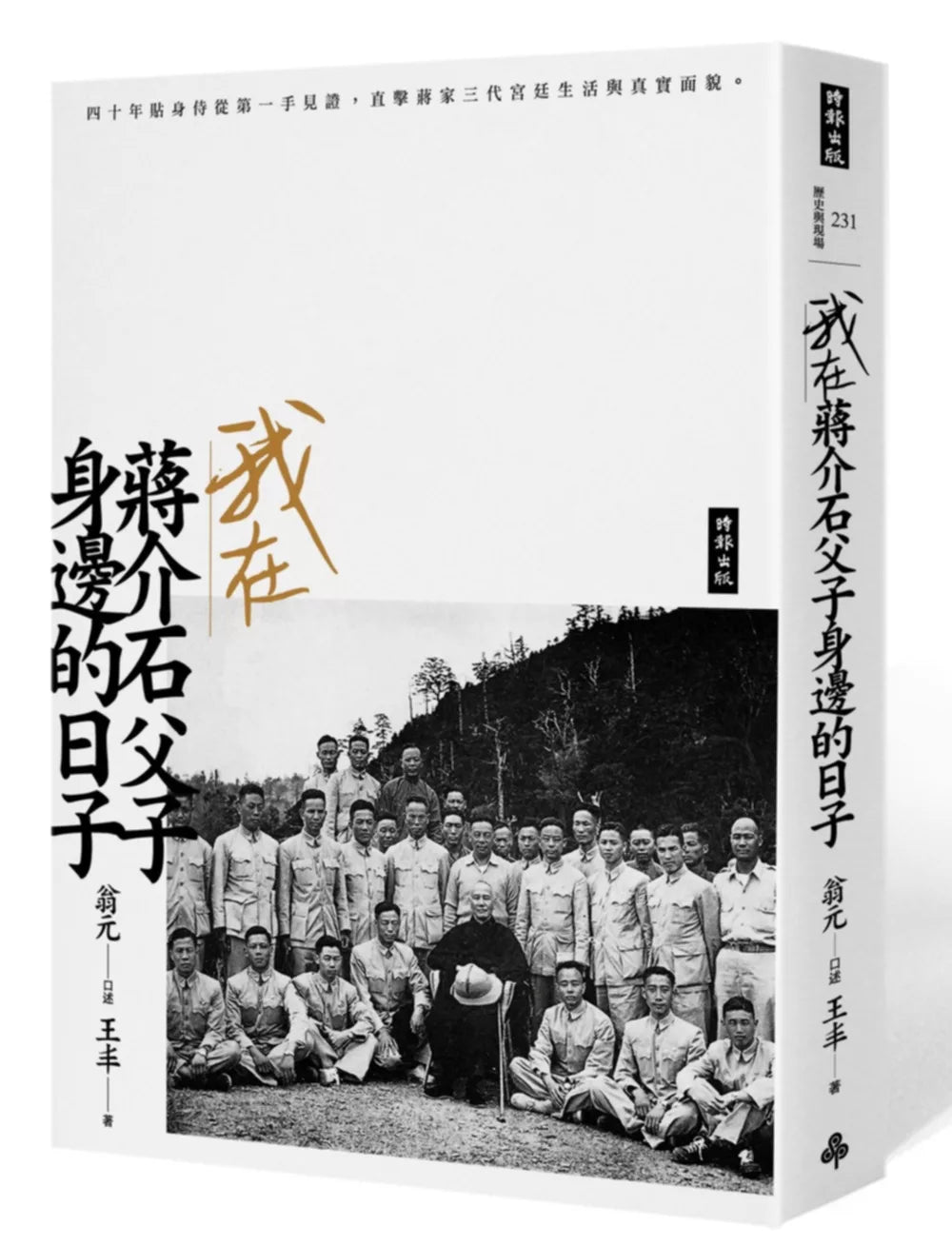1
/
of
2
My days with Chiang Kai-shek and his son
My days with Chiang Kai-shek and his son
Wang Feng , Weng Yuan
Regular price
$23.99 USD
Regular price
Sale price
$23.99 USD
Unit price
/
per
Low stock
Couldn't load pickup availability
About Book
About Book
Forty years of firsthand testimony from a personal attendant reveals the true nature of court life for three generations of the Chiang family.
When I was young, I never even dreamed that I would become the personal attendant of Chiang Kai-shek and his son.
And we will continue to serve them until the moment they die. — Weng Yuan
Unveiling the mystery of the Jiang family——
How did Chiang Kai-shek, who fled from mainland China to Taiwan, spend his later years in Taiwan like an emperor?
What is the true face of Madame Chiang Kai-shek, Soong Mei-ling, who loved power and had a strong image?
‧What was Chiang Ching-kuo like in private, even though he worked hard to create an image of being frugal and caring about the people?
Why did the Chiang family's political career end with Chiang Ching-kuo? Was it really because they passed the throne to the wise man and not to their son?
Regardless of one's political stance, it's hard to deny the profound influence of Chiang Kai-shek and Chiang Ching-kuo on Taiwan's modern history. During that era of authoritarian rule, when press freedom was prevalent, let alone the people's right to know, the two Chiangs were portrayed as godlike figures of perfection and grandeur. However, after the lifting of martial law, they were subjected to slander and vilification. These two distorted and extreme perspectives have long shrouded the complex and enigmatic Chiang family, shrouding it in a fog of mystery, a source of both curiosity and elusiveness. In this book, the mysterious life and polarized evaluations of the Chiang father and son are gradually revealed through the memories of their close attendant Weng Yuan, revealing their true and human nature.
Weng Yuan's department, the Internal Affairs Department, resembled the eunuchs of imperial China, constantly tending to the Chiang family and their close relatives. The lives of the Chiangs differed dramatically: Chiang Kai-shek lived like an ancient emperor, with someone fanning him in the summer, bathing by his side, a sedan chair carried him to remote mountainous areas, and even the water he drank maintained a constant temperature. Rumor has it that "Hong Kong has its 97 restrictions, and Soong Mei-ling has her 97 belongings." But were these the only treasures Madame Chiang Kai-shek took with her when she left Taiwan? Chiang Ching-kuo, while frugal and secretive, disliked being served, was a natural politician, displaying a dual personality both in public and private. Weng Yuan accompanied the Chiangs through their illness-ridden final years and provided emergency care during their final moments, witnessing firsthand the decline of a powerful figure. Furthermore, the Chiang family's complex court politics, educational discord, and family history of illness further accelerated the disastrous decline of the third generation. This book not only restores the Chiang family's original image but also offers profound reflection for those of us living in a free society.
When I was young, I never even dreamed that I would become the personal attendant of Chiang Kai-shek and his son.
And we will continue to serve them until the moment they die. — Weng Yuan
Unveiling the mystery of the Jiang family——
How did Chiang Kai-shek, who fled from mainland China to Taiwan, spend his later years in Taiwan like an emperor?
What is the true face of Madame Chiang Kai-shek, Soong Mei-ling, who loved power and had a strong image?
‧What was Chiang Ching-kuo like in private, even though he worked hard to create an image of being frugal and caring about the people?
Why did the Chiang family's political career end with Chiang Ching-kuo? Was it really because they passed the throne to the wise man and not to their son?
Regardless of one's political stance, it's hard to deny the profound influence of Chiang Kai-shek and Chiang Ching-kuo on Taiwan's modern history. During that era of authoritarian rule, when press freedom was prevalent, let alone the people's right to know, the two Chiangs were portrayed as godlike figures of perfection and grandeur. However, after the lifting of martial law, they were subjected to slander and vilification. These two distorted and extreme perspectives have long shrouded the complex and enigmatic Chiang family, shrouding it in a fog of mystery, a source of both curiosity and elusiveness. In this book, the mysterious life and polarized evaluations of the Chiang father and son are gradually revealed through the memories of their close attendant Weng Yuan, revealing their true and human nature.
Weng Yuan's department, the Internal Affairs Department, resembled the eunuchs of imperial China, constantly tending to the Chiang family and their close relatives. The lives of the Chiangs differed dramatically: Chiang Kai-shek lived like an ancient emperor, with someone fanning him in the summer, bathing by his side, a sedan chair carried him to remote mountainous areas, and even the water he drank maintained a constant temperature. Rumor has it that "Hong Kong has its 97 restrictions, and Soong Mei-ling has her 97 belongings." But were these the only treasures Madame Chiang Kai-shek took with her when she left Taiwan? Chiang Ching-kuo, while frugal and secretive, disliked being served, was a natural politician, displaying a dual personality both in public and private. Weng Yuan accompanied the Chiangs through their illness-ridden final years and provided emergency care during their final moments, witnessing firsthand the decline of a powerful figure. Furthermore, the Chiang family's complex court politics, educational discord, and family history of illness further accelerated the disastrous decline of the third generation. This book not only restores the Chiang family's original image but also offers profound reflection for those of us living in a free society.
Publication Date
Publication Date
2015-12-22
Publisher
Publisher
時報出版
Imprint
Imprint
Pages
Pages
368
ISBN
ISBN
9789571364698
share



